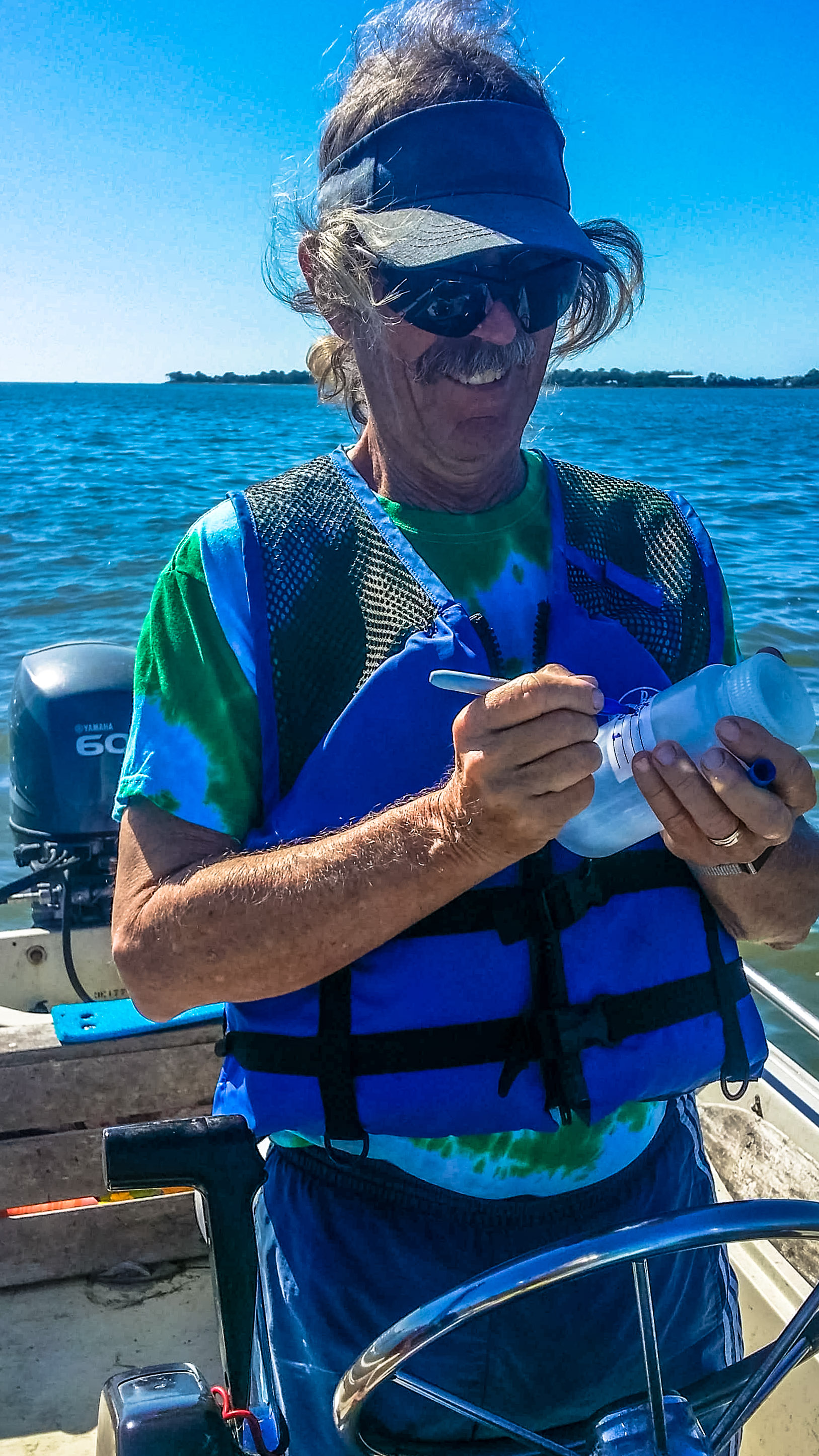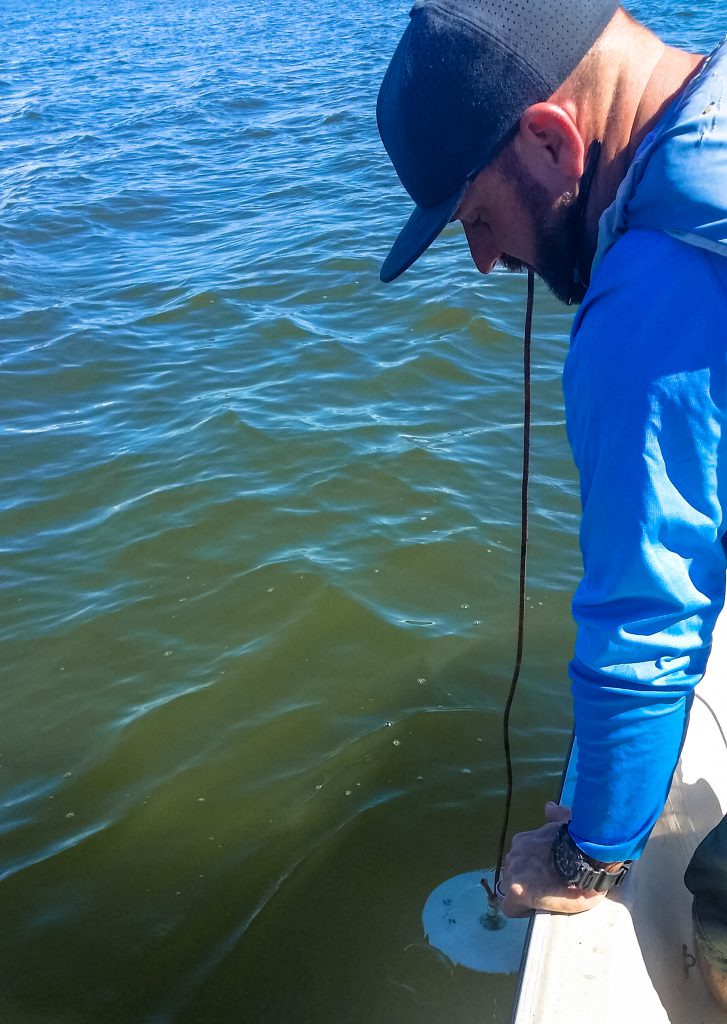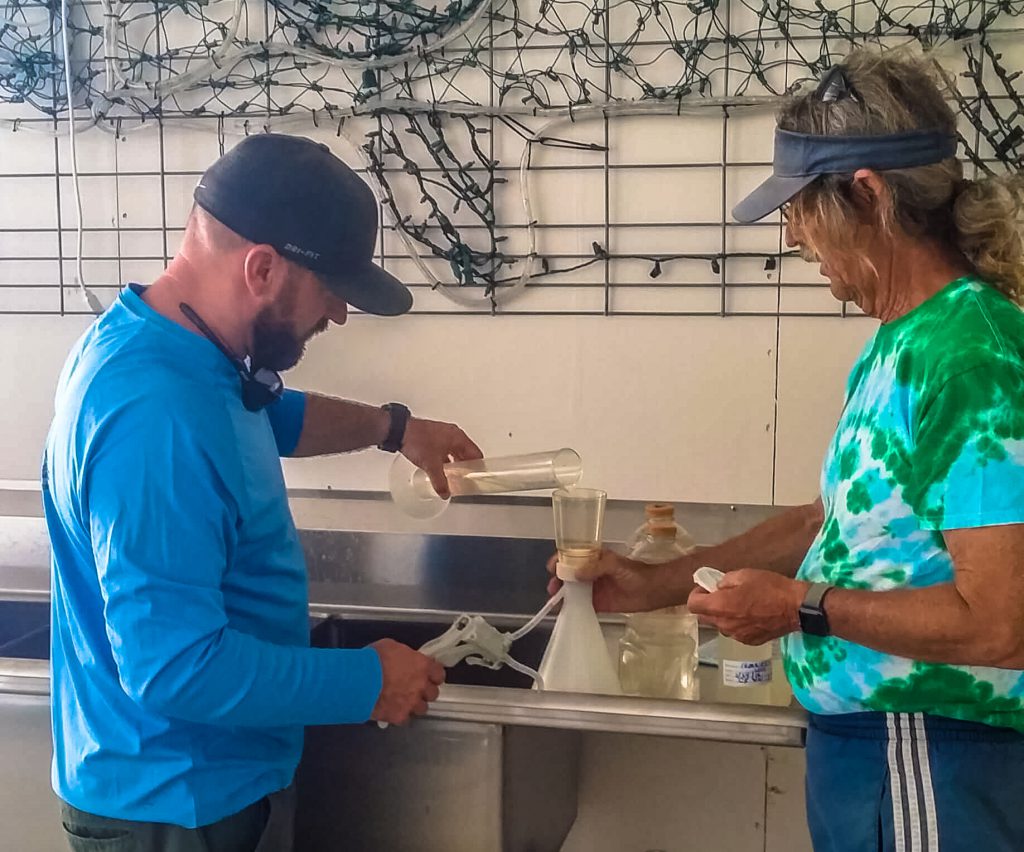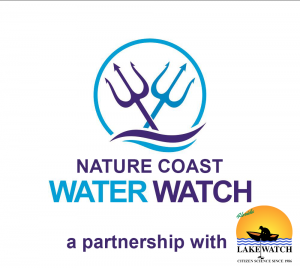
What is Water Watch?
Water Watch is a statewide program that trains citizen scientist volunteers to measure water quality along Florida’s coasts. In Cedar Key, the Water Watch program is a partnership with Florida LAKEWATCH. In Florida, LAKEWATCH volunteers have been tracking water quality in freshwater systems since 1986. However, a comparable citizen science program for our coastal areas did not exist until recently. Now, Water Watch volunteers around the state are helping fill data gaps and identify water quality issues by sampling coastal waters in their own backyards.
Who is Watching our Water?
In Cedar Key, volunteers Joe Hand and James Custer are dedicated to tracking water quality in the estuary they call home. Joe and James

started sampling the waters off Cedar Key in January 2017 and have not missed a single month on the water. Over time, the data they collect will tell water resource managers important information about seasonal and multi-year changes in the estuary. Hand, who currently serves on the water board in Cedar Key, recently retired from a career with the Florida Department of Environmental Protection. Custer is the Director of Public Works in for the City of Cedar Key. Both of these dedicated volunteers are huge contributors to the community in their daily lives. Volunteering for Water Watch is just another way they are contributing!
What is involved?
Watch Watch volunteers take slightly different kinds of measurements depending on local

water quality data needs. In Cedar Key, a lot of data is already collected by the FL Dept. of Agriculture and Consumer Services (FDACS) because of the shellfish aquaculture industry. Staff from FDACS collect regular data on salinity, alkalinity, dissolved oxygen, and bacterial levels but they do not track nutrient levels or concentrations of microalgae. This kind of data is important, however, because it tells managers and researchers a lot about ecosystem health. Therefore, Water Watch volunteers in Cedar

Key take samples to track these important parameters. The samples are sent to the LAKEWATCH lab in Gainesville where they are analyzed for total nitrogen, total phosphorus, chlorophyll-a (algal concentration), and other variables. Stay tuned for more information about the results of the first year of sampling!
If you or your organization is interested in getting involved, contact me at savanna.barry @ ufl.edu to find out how! Priority sampling areas include the estuarine zones off of Horseshoe Beach and Econfina. We also have a volunteer program in the St. Marks estuary with open spots.
 0
0
